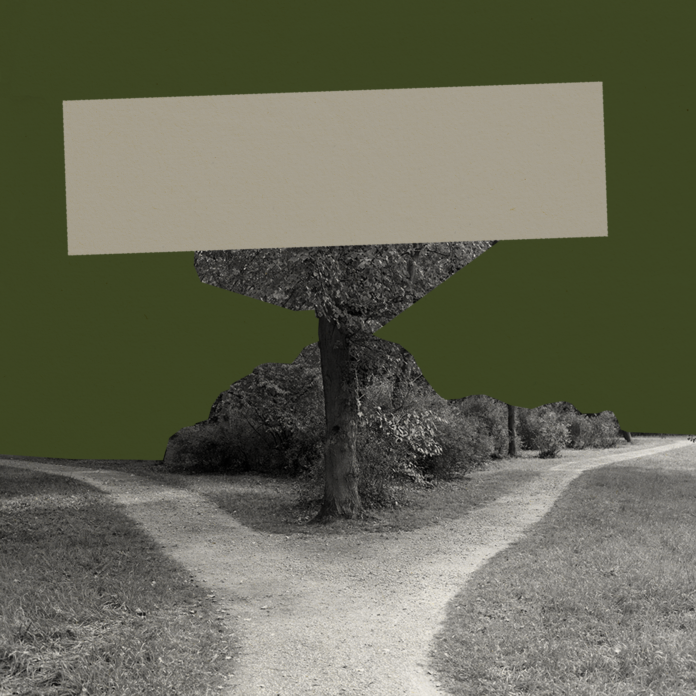A few years before her husband died, the painter Berthe Morisot and her family spent the summer and autumn at a falling down villa in Nice. It was surrounded by orchards of orange trees. All day every day they spent outside, eating outside, and working outside, and doing nothing, the three of them, Berthe, Eugene, and Julie, their daughter, lying in the grass and wandering the orange groves. It was the happiest they had ever been or would ever be, walking the dusty paths of the hills above the ocean together, and Julie taking the birdcage outside with the bird in it to hang it from an orange tree. Julie in a white dress, and Berthe too, though she always wore black in Paris. Their daughter, waking in the morning with her child concerns, her curiosities, this creature who had stormed into their lives when Berthe was already late in her 30s and thought it would never happen.
What an odd and wonderful baby she had been, with her large head “as flat as a paving stone,” and her furious little face, her eyes intense as Berthe’s were but with the beetling brow of a Manet. How she bullied the other children with her fierce child-love, tackling them and pinning them, shouting at them: Je t’aime! You’d never guess she’d grow up to be a beauty.
And of course one can’t forget the art, the paintings, the exhibitions, the shows. The little studio that she set up in the garden of the home of her parents, with the red sofa inside, and the windows opened wide to receive the air of the seasons. During the war, cannon fire blew the windows out, and soldiers were stationed in the house and in the studio. She joked with Edma, her sister, that the Manet brothers spent the war changing their uniforms, playing at being heroes, after joining the Garde Nationale. She feared the usual things that a woman fears, in war. She didn’t eat. None of them did that winter, when the Prussian troops prevented supplies from coming in, and the Paris butchers cast their desperate eyes on carriage horses, stray dogs, rats.
Degas thought she was good, and told her so, and that was something. And Monet had faith in her, and Renoir. Chavannes was supportive, but he was in love with her and everyone knew it. Édouard, her husband’s brother, the great painter, thought she didn’t use enough black. They warned her as the years passed and she didn’t marry, that she ought to marry, that she ought to choose someone. And then one day there was Eugene, with his soft beard, his lack of ambition, and his comfortable smile. A man who would sit beside her as she drew in the countryside, advocate on her behalf in the world of artistic men. He would try to give her a child. It was a shock at first—marriage—but then indispensable. When an art critic insulted her, Eugene offered to fight a duel. For years the baby didn’t come, each monthly flash of red a defeat, and she wrote her sister to say as much. But then the baby did come.
It’s all there in the collected letters, the ones Berthe wrote and the ones written to her, how she was sad when her own beautiful dark hair started to turn gray and then white completely. How she noticed when the compliments stopped, saw the reflection of her beauty fade in the faces of the people around her, saw it dwindle in the reactions of those she met for the first time. How sad, she thought, that she would have to die one day. Then came her last letter, to Julie, written on the eve of her death, written as she lay dying from a sudden viral illness that she knew would not let her last the night. The news would reach her shocked friends, Monet, and Degas, and Renoir. All the Manet brothers gone already, Eugene the last to go, and her mother-in-law, and her own parents, and her elder sister just three years before. Her final thoughts were only of Julie. Julie—the last word she ever wrote.
(My little Julie, it began, I love you as I die. I shall still love you even when I am dead.)
They are all gone now, but the paintings, and the letters, they remain. The paintings are scattered all over the world, in New York, Chicago, Edinburgh, Tokyo, Paris. Forever on the canvas a young girl reaches up into the orange trees. Forever on the canvas the light pours down on a villa in southern France. Somewhere in a museum in America, Julie still sits under the branches in the tall grass with the birdcage beside her and the green bird within, the light turning her white dress blue and pink, and the glow of the grass reflecting on her face, under a heavy branch laden with ripening oranges, halfway between orange and green.
Grief has no predictable stages. It hits you like a car accident and is as varied, arrives and fades like a bruise, remains like a bad knee in wet weather, heals like an amputation. That bruise is its only rainbow, its colors smeared, Munch-like, across the real-life sky. It feels like nothing, feels like you’re fine, like you’re dying, like you’re perfectly fine again. It lives in your organs, lives in your blood, in the daylight that touches the walls, in the color of the daylight on the walls of your room, in that part of you that remembers, the happiest time you ever spent, so long ago now as though it happened to someone else. Listen and you’ll remember, the orange groves and the dusty paths above the ocean, in the summer, in Nice.


